I've read over 500 theology books in the last ten years. (Some people read these many books every year!) Of all these books, there are fifteen books that stand apart as guideposts in my journey of exploration in theology. I don't recommend all of these books today, but these books were formative for me. I hope that sharing this will inspire you to consider the books that have influenced you! What will you and I learn in the next decade?
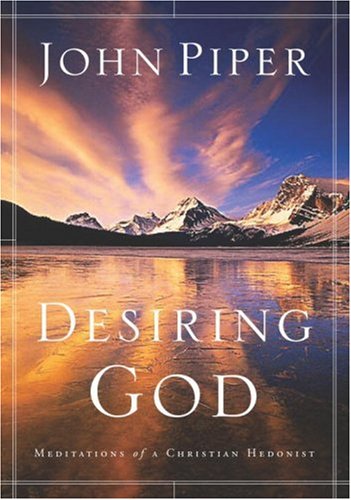 |
John Piper, Desiring God: Meditations of a Christian Hedonist Read: Summer, 2005John Piper's Desiring God, isn't a book that I'd recommend today, but it was my first encounter with any form of Reformed Theology (or atleast the Baptists who have adapted and adopted a form of predestination from the Reformed Tradition). It was the first book that spoke positively about John Calvin, and served more as a gateway to other literature.Regardless of whether I agree with John Piper today or not, he was certainly an influence on me that put me on a course of exploration of the Reformed Church tradition. |
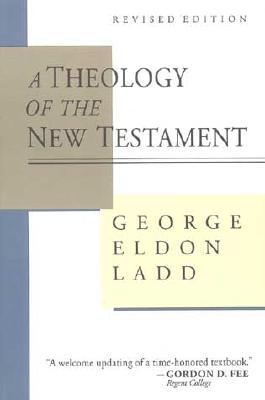 |
George Eldon Ladd, Theology of the New Testament Read: Fall 2005A pastor at Moody Church recommended me G.E. Ladd's Theology of the New Testament. It was the first theology book that I had read, and eye opening into the field of New Testament studies. I was introduced to Rudolf Bultmann through this book. However, after reading Bultmann's Theology of the New Testament, my opinion of G.E. Ladd's book was severely diminished, and I now see it as an evangelical reaction to Bultmann, rather than providing anything particularly enlightening. Ladd to Bultmann is like the Dawkin's Delusion is to the God Delusion, respectively. G.E. Ladd wrote a book on Bultmann that I haven't read, but it is famous. I now have appreciate for Bultmann, but Ladd had convinced me that Bultmann was an enemy of Christianity for many years (typical Evangelical fundamentalism). One of my favorite books by Bultmann is his Primitive Christianity: In it's Contemporary Setting. There is one book by G.E. Ladd, New Testament and Criticism, that I'd still possibly recommend, because it has some excellent criticism of modern forms of literal inspiration that evangelicals still need to hear today. John D'Elia's A Place at the Table is a biography on G.E. Ladd and was responsible for my turning attention to other authors.Although I do not read G.E. Ladd anymore, he was the one who introduced me to New Testament scholarship, Rudolf Bultmann and apocalyptic literature (such as the Dead Sea Scrolls). |
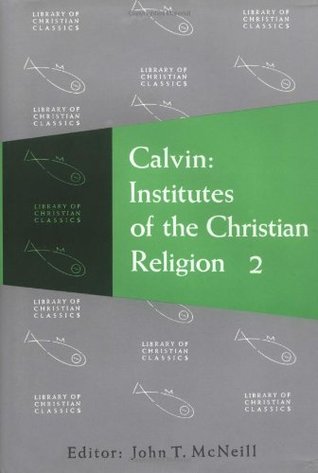 |
John Calvin, Institutes of the Christian Religion (2 Vols) First read: Summer 2009I've almost completed my second reading of this 1,500 page master piece by the Church Father, John Calvin. This is the most influential book that I've ever read, and remains foundational for my understand of theology in toto. The book introduced me to Protestant tradition, and helped me understand what it means to be Protestant and Reformed. It's sad that Calvin has been reduced to the TULIP by Calvinistic Baptists. In my second read through this masterpiece, I'm starting to understand Calvin not as a timeless authority, but a fixed datum in time of the development of the Church. One to stand on and go forth from, and not one to retreat back to.Calvin's institutes also instilled a love of Systematic Theology in me, that has caused me to read many other systematic theologies and dogmatics including ones by Herman Bavinck, Francis Turretin, Michael Horton, Louis Berkoff, Charles Hodge, and others. |
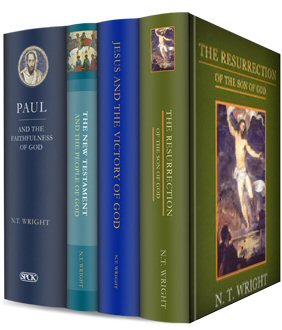 |
N.T. Wright, Christian Origins and the Question of God (4 Vols; esp Jesus and the Victory of God) First volume read: Fall, 2009I read all four of these volumes out of order. N.T. Wright introduced me to a level of scholarship, especially contemporary scholarship, that I had not engaged before, and also approached the same questions from a different perspective than I was useful. He's a very conservative scholar, so his engagement with more liberal protestant scholarship was eye opening for me, but at the same time, these new waters were navigated through cautiously. Resurrection of the Son of God (Vol.3) was the first book in the series I read, and it is still used widely by Evangelicals, even those who are suspicious of N.T. Wright, for the purpose of apologetics. It was an excellent book that first helped me to understand what was the resurrection. I then read Jesus and the Victory of God, which remains the most significant and influential book by N.T. Wright on me for introducing me to The Quest of the Historical Jesus, and all the scholars in that field, most notably Albert Schweitzer. I've been marginally influenced by the New Perspective on Paul, but this was displaced by Roman Catholic theologians that I later read. |
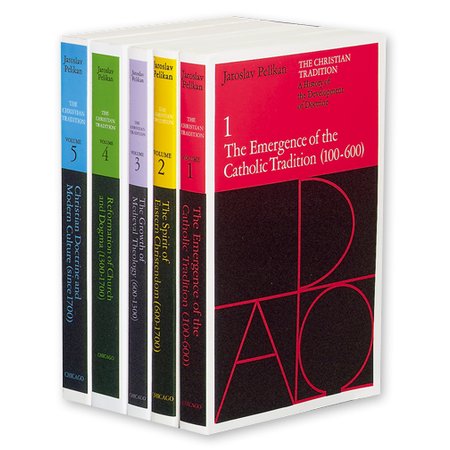 |
Jaroslav Pelikan, The Christian Tradition: A History of the Development of Doctrine (5 vols) First volume read: Apr, 2010History of Dogma is and has aided me significantly in learning theology, and Pelikan's five volume set was a gateway for helping me understand how theological statements came to be formed over time and through Church History. Before Pelikan, I was more influenced by a form of biblicism that used the bible against history, that Pelikan helped me to use history to understand the bible. The first three books of this series are the best, and the last two were disappointing. I highly recommend reading them today, but also with a grain of salt! Often the best historians arent the best theologians, and they do not hide their biases.Pelikan introduced me to the genre of History of Dogma that caused me to read people like Adolf Von Harnack's History of Dogma (7 volumes), as well as histories on Christianity in America by George Marsden and Mark A. Noll. I've since had personal correspondences with Marsden and Noll that have helped me further develop my understanding of Church History that has been invaluable. Pelikan sparked my interesting in Christian biographers as well, such as Peter Brown's Augustine and Roland H. Baiton's Here I Stand, and Bruce Gordon's Calvin. |
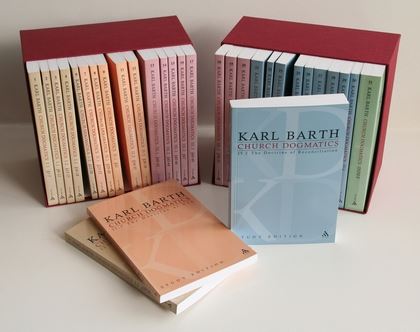 |
Karl Barth's Church Dogmatics (14 vols; esp I/2, II/1, III/1 and IV/1) First volume read: April, 2010Possibly the only book more influential to me to this day, except for possibly Calvin's Institutes, is Karl Barth's Church Dogmatics. My history with Barth was a bumpy road, and I was originally very hostile to Barth until I decided to read CD II/1 and CD II/2 for myself. I have much to repent for since then. I've now read eight of the thirteen volumes, and am especially indebted to Barth for his Doctrine of the Word of God in CD I/1, his rejection of Natural Revelation in CD II/1, his Doctrine of Election in CD II/2, his Doctrine of Creation in CD III/1 and his Doctrine of Reconcilation in CD IV/1. There are places where I do not follow Barth, but I'd understand myself as going beyond Barth (ie postbarthian) than being opposed to Barth.I being with the inexpensive hardcover reprint edition that does not have the translations for about $100-$150, and there is a 31 volume study edition that is very expensive ($750-1000) and has the translations that is out of print that I now own. Either are a great place to begin. |
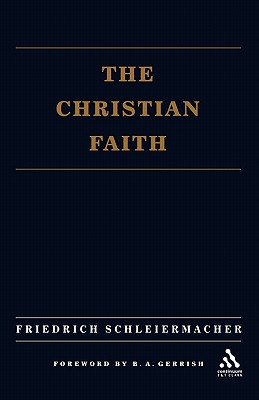 |
Friedrich Schleiermacher's The Christian Faith Read: Dec, 2010I struggled my way through Schleiermacher's The Christian Faith for a long time. I had to request it multiple times from interlibrary loan before completing this book. It may have been the most difficult theology text I've ever read. I'm still not coming to appreciate Schleiermacher and to engage in his ideas. He is the first introduction I've had to Liberal Protestantism and an author I've coming to understand in retrospect in better and new light. It is largely through Karl Barth that I gained interest in Schleiermacher. |
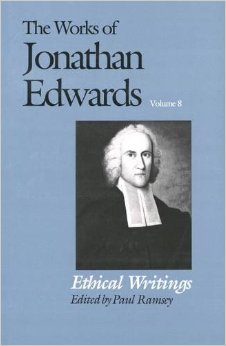 |
Jonathan Edwards, "Ethical Writings" (Yale, vol 8) Read: July 2011I was introduced to Jonathan Edwards through John Piper. Piper published God's Passion for His Glory, which is a commentary on an essay in this book by Edwards, titled: The End for Which God Created The World. Although Piper introduced Edwards to me, it was other Edwardsian ideas that captivated my attention, most notably his Postmillennialism, arguments on Infant Baptism and the Lord's Supper, his arguments for Panentheism, and other fascinating ideas that John Piper does not share. Many of Edward's ideas are overlapping with Jürgen Moltmann's eschatology, and these interest me the most today. I'd still recommend Edwards in a way that I wouldnt recommend Piper. All of Edwards writings are available online at Yale's Edwards Center: http://edwards.yale.edu |
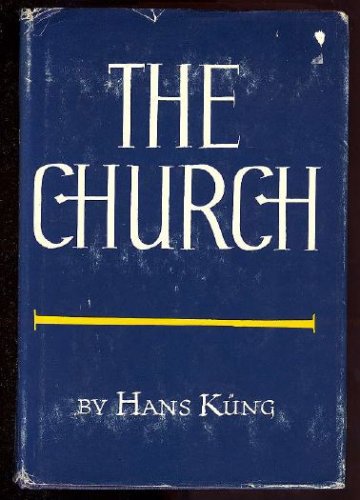 |
Hans Küng, The Church Read: Oct, 2011 Hans Küng's single volume The Church is the best that I've read on ecclessialogy, and it significantly changed my view of the Roman Catholic Church, as well as my understanding of the Universal Church. Hans Küng is no papist, and was stripped of his right to teach after writing the book: Infallible? An Inquiry. Most of the books on the Church I had read before were contrived of novel ecclesiastical formulations or consisted of Protestant Catholic-Bashing. Küng was a petrus at the Second Vatican Council and a priest for many years before he was disciplined. This book is outstanding, and I still reference it to today. There is a companion book called Structures of the Church, in which Küng established the concicular basis for the Church that should also be read, and he has a The Catholic Church: A Short History that is a great introduction to Church History in under 200pages that I enjoyed and frequently recommend. Most recently, I've been influenced by his book, Justification. |
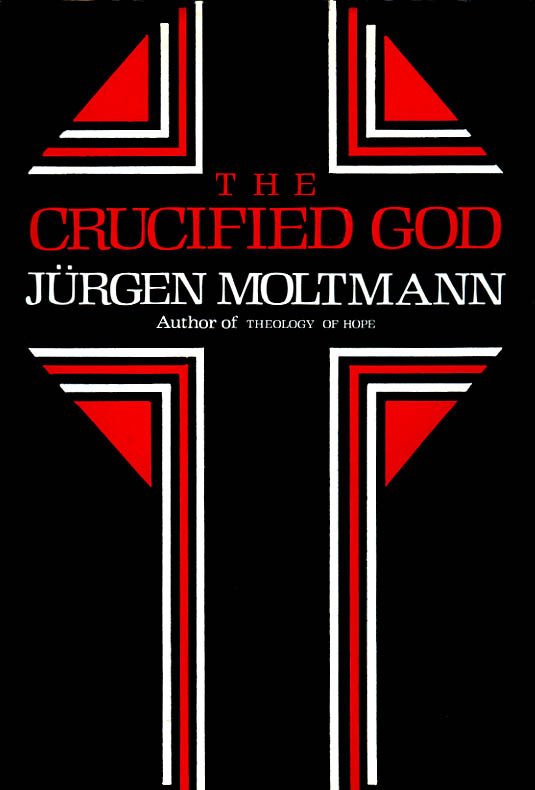 |
Jürgen Moltmann's The Crucified God: The Cross of Christ as the Foundation and Criticism of Christian Theology Read Oct 2011If I had to choose my top three favorite theologians of all time, it would be 1) John Calvin 2) Karl Barth and 3) Jürgen Moltmann (the order changes from day to day). This book by Moltmann was a bomb shell for me. The Crucified God, completely changed my understanding of the Cross of Christ and of the pathos and nature of God. It not only changed my entire mindset theologically, but also pastorally. I employed this book many times while counseling people at my church. |
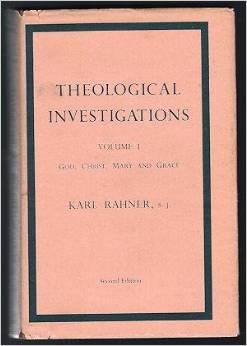 |
Karl Rahner, S.J., Theological Investigations (Vol. 1 & Vol. 4) Read first volume: June 2012Karl Rahner published atleast 23 volumes in his Theological Investigation series. Rahnerism revolutionized my understanding of Catholic Theology and the magesterium after reading the first volume, Theological Investigations, Volume I: God, Christ, Mary and Grace, and then again, I was again rocked by Theological Investigations, Volume IV: More Recent Writings. A short volume, Trinity, has also been published that explains Rahner's identity between the economic and ontological Trinity. Ever since this book, I've been obsessed with Rahnerism, and he is my favorite, non-barthian Roman Catholic. |
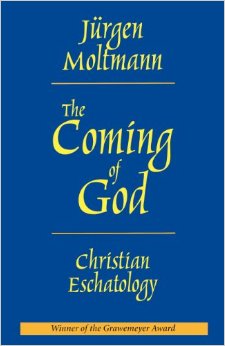 |
Jurgen Moltmann, The Coming of God: Christian Eschatology Read: Jan, 2013Moltmann is on this list twice, but I easily could have listed his books in all fifteen spots on this list! This is Moltmann's eschatology. This book is on here specifically for a few chapters on Universalism, Double Judgement, and Millennialism. My entire eschatology and worldview was again changed by this books reorienting effect on my worldview. I saw the Gospel different and the good news of election completely different after reading it. There are other books I've read that are related directly to this topic, especially Hans Urs Von Balthasar's Dare We Hope That All Men Be Saved? With a Short Discourse on Hell. This book also helped me understand Karl Barth's hopeful universalism statements and his doctrine of election in CD II/2. |
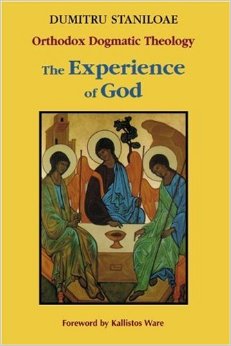 |
Dumitru Staniloae, Orthodox Dogmatic Theology (6 vols) Read: May, 2013I learned about Dumitru Staniloae from the Fr. George Florovsky society's symposium on the Patristic Doctrine of Scripture in 2013. I heard a lecture by Radu Bordeianu who wrote a book on Staniloae, Dumitru Staniloae: An Ecumenical Ecclesiology (Ecclesiological Investigations), and contacted him about a reference he made to Staniloae's use of John Calvin's "Prophet, Priest and King" Christology. He responded and answered some questions regarding his book, and gave me a list of Orthodox authors that I should read. I also had learned that Moltmann had corresponded with Staniloae, so this made him more fascinating to me. I read all six volumes of the Orthodox Dogmatic Theology, and had to wait for the sixth one to be published before finishing by Holy Cross Publishers. The book opened my mind and heart to Orthodox theology that was kindled by the Florovsky society. I read many books on orthodoxy after this one, one of the most notable being The Orthodox Church by Timothy Ware. I've yet to read Florovsky, mostly because his books are very expensive and not available in English. |
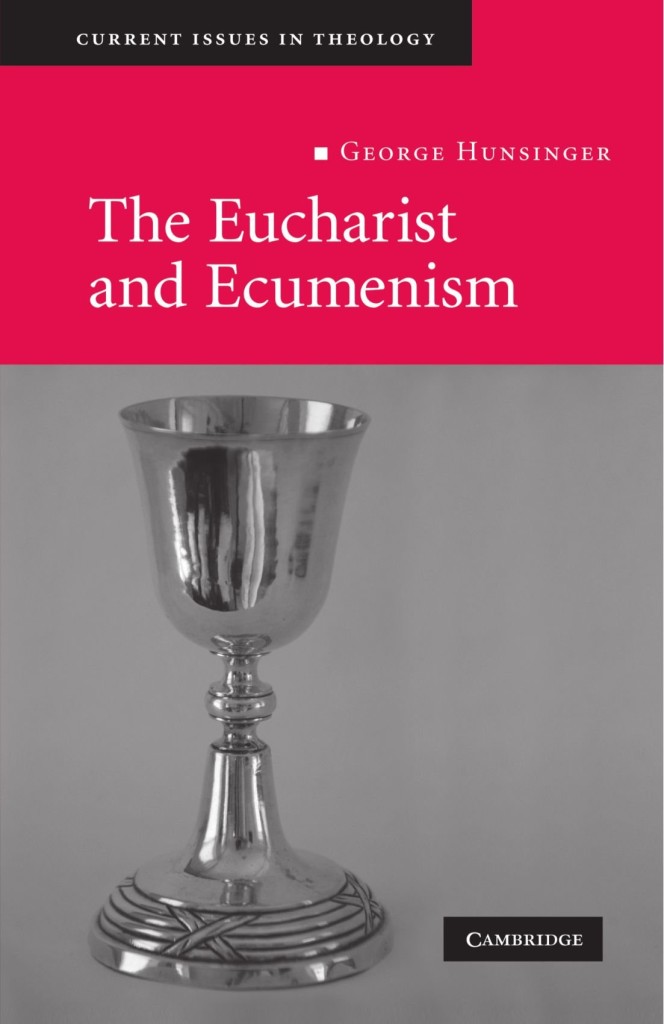 |
George Hunsinger, Eucharist and Ecumenism: Let Us Keep The Feast (Current Issues in Theology) Read: June, 2013I also learned about George Hunsinger from his participating in the same Florovosky symposium. He had spoken, and I learned from the Moltmanniac that Hunsinger was an expert on Karl Barth. I found and read several of his books, but one book in particular had captivated me, Eucharist and Ecumenism. His arguments for transelementation helped me to understand the Lord's Supper in terms of real presense in a way that I never considered before, and the ecumenical focus of the book towards the One Holy Catholic Church followed what Hans Kung had written in his book, The Church, that I had loved so much. I still think it's excellent. And in this book he addressess many issues from women to homosexuals, that I still discuss often with my friends. Through some email correspondance with Hunsinger, I also came to know Dr. W. Travis McMaken and his book The Sign of the Gospel, which has been considerablly helpful for me to understand Karl Barth's criticisms of Infant Baptism while being a presbyterian! |
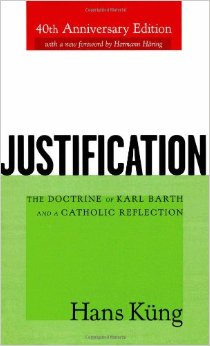 |
Hans Küng, Justification: The Doctrine of Karl Barth and a Catholic Response Read: Aug 2014Why am I a Protestant? What makes me a separated brother of the Roman Catholic Church? Küng explained clearly what is the issue the divides the Western church, it is Salvation by Faith Alone, and that alone is the loci of division. My view of the Universal Church has been entirely changed after reading this book. |
Publication date: January 15, 2015



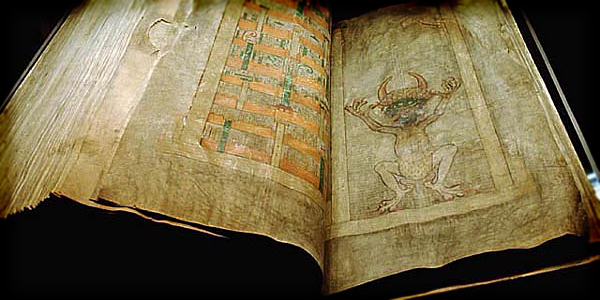
Leave a comment